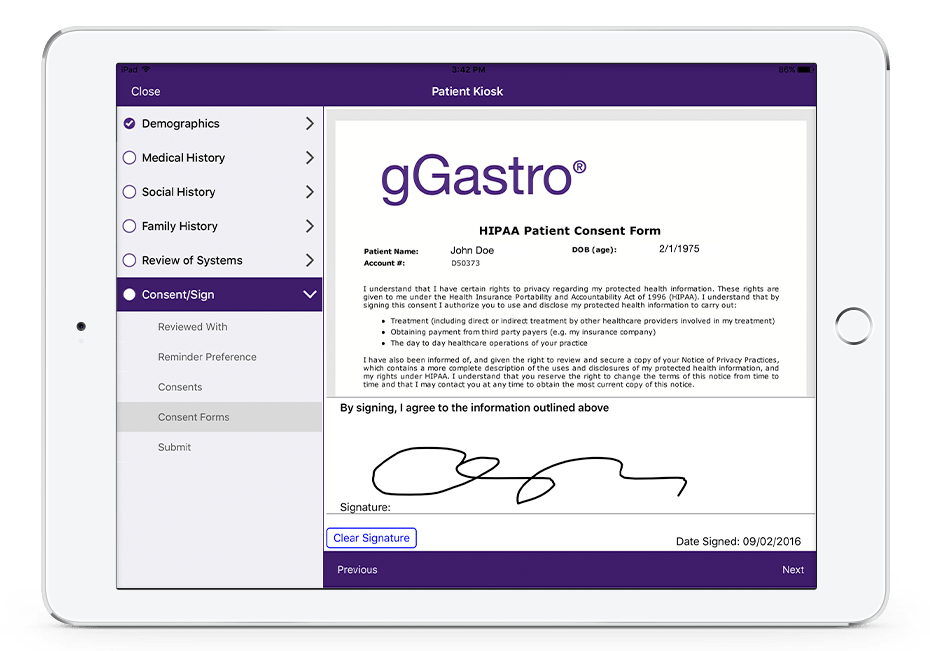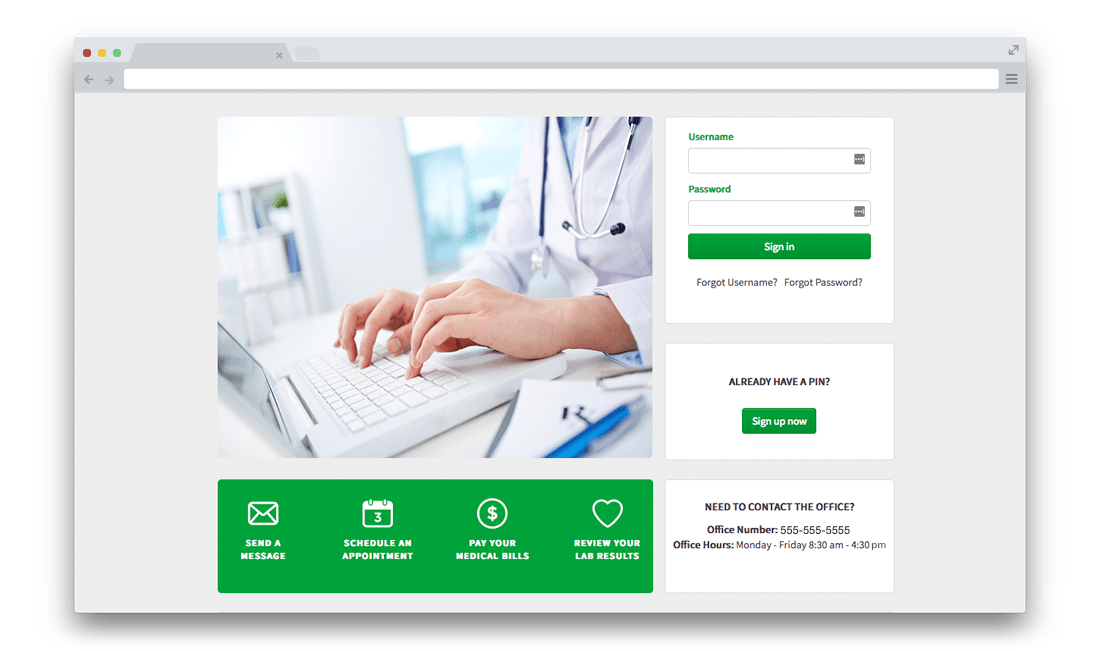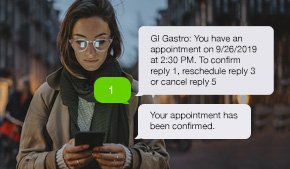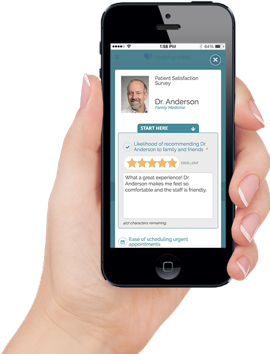How Do You Make Your Gastroenterology Practice More Appealing to Millennials?

Part of the equation includes gastroenterology software and technology that adds convenience and visibility.
How Understanding Millennials Can Help Your Gastroenterology Practice Thrive
Just how are millennials defined? According to a report from Brookings and an infographic from Cardinal Health, millennials are those born between 1982-2000 and make up approximately 23 percent of the U.S. population. With 44 percent part of a minority or ethnic group, it makes them one of the most diverse generations. They are twice as likely to do their due diligence on providers through online sites, and many, 72 percent actually, feel unsure about their health benefit options.
When it comes to characteristics, these digital native millennials value and want health information from multiple sources, and seek a consumer-centric and convenient experience.
So why does this matter to you as a gastroenterologist and your practice? It matters because just as the dynamics and characteristics of generations change through the years, your practice needs to evolve with the times to meet such needs to continue to build your patient base for years to come. However, more importantly it matters because of health risks this group faces.
Studies have shown that while colorectal cancer has rapidly declined overall, it has increased in the population of young adults. One recent report suggests that millennials have about twice the risk for colon cancer compared to those born in 1950. But why? The answer isn’t clear and could be partially linked to poor diet and lack of exercise which can lead to obesity. This trend emphasizes the need for patient education, prevention and early screening. Part of this journey starts with millennial patients finding a gastroenterologist they trust for current and future care.
With over 40 years in medical practice and 20 years in practice leadership, I’ve seen numerous shifts in terms of what patients expect and want and the generation of millennials is no different. Perhaps what they want and expect may even help your practice to make a shift in a more technologically advanced direction and benefit you as a provider and your staff as well.
1. A Strong Online Presence
It proves more difficult to attract new patients if they can’t find you in the digital sphere with a simple Google search. Key components of a strong and robust digital presence include:
- Google map listings with accurate photos, physical address, web address, phone and office hours
- An updated and easily navigable website with contact info and resources enhanced for search engine optimization (SEO)
- Social media which can be a presence on any combination of Facebook, Twitter, Instagram, LinkedIn, YouTube and/or Snapchat
- Advertising with pay per click ads on Google and those targeted to a users’ search history can really help people already looking for an answer
- Coverage in the media such as quotes in consumer-facing articles, the practice being noted in the news for their philanthropic events and for sponsoring local community events
Creating a strong presence and brand online doesn’t happen overnight and a marketing agency or dedicated staff member can really help enhance your practice’s digital footprint.
You want to make your practice easily discoverable and this generation probably won’t pick up a Yellowbook to find you. According to the Pew Research Center, 77 percent of Americans have a smartphone. The ability to whip out a phone and specifically “ask” it for gastroenterologists in the area or look up reviews of physicians found on one’s insurance plan has become increasingly easier.
You need to go where potential patients are and in this case, it’s online.
Patients, especially millennials, will research and consult various sources before making a decision whether that decision involves buying a new car, purchasing a new laptop or even deciding on what physician to schedule an appointment with. They value helpful online resources.
For instance, perhaps a potential patient thinks they suffer from a certain condition, such as irritable bowel syndrome (IBS) for example. Patients may start searching online for “causes of IBS, diagnosis for IBS and treatment of IBS.” If your website is up-to-date and provides helpful information on these topics, this can help your practice get discovered online and provide added credibility at the time the patient wants to make an appointment with a gastroenterologist. Your practice and providers become viewed as a trusted source of valuable information.
2. Making Provider and Cost Information Readily Accessible
This ties into having a strong online presence and the ability now for us to price compare and “shop around” with the aid of the Internet in the palm of our hands.
With 72 percent of millennials unsure of their health benefit options, the more you can serve as a resource and provide price transparency the better.
You want to make sure accepted insurance(s), provider information and even estimated costs for common treatments and procedures are readily accessible. Make sure you have a well-informed staff who can intelligently speak to a patient who may call in with questions on coverage and estimated costs.
3. Office location, access, availability
So you’ve expanded your online presence, you should now think about the physical location of your office. If you’re considering an expansion or changing office locations, understand the need and the demographics in the area. This will help you know how you may need to market your practice and the population of patients you will most often serve.
With millennials, convenience plays a strong role in decision-making. Close proximity to where they live and work and availability of office hours before and after work and during lunch may make your practice more appealing when compared to the GI-group down the street.
4. Gastroenterology software and technology in your practice
So your new millennial patient discovered your website when searching for IBD treatment options, read a few articles and decided to make an appointment with one of the gastroenterologists on staff. Your website or that first phone call is the patient’s first experience with your practice, and you have only one opportunity to make a first impression. What’s next? The patient’s first in-person experience in your practice at the time of their initial appointment. The latest innovation in treatment options is not the only part that matters.
Instituting leading gastroenterology software can help make your practice cutting edge and even more appealing to digital natives. You want to make sure you have the right gastroenterology patient engagement tools that will benefit current patients, help attract new ones and add efficiency for your staff.
I’ll highlight some of these gastroenterology software tools such as patient kiosk, patient portal, appointment reminders and patient surveys and why these tools can further help your practice appeal to the millennial population and beyond.
 An iPad Patient Kiosk: Instead of the dreaded clipboard and paper, patients can tap and swipe their way through consent forms, demographics, clinical data and more, putting them in the driver’s seat when it comes to their healthcare. It helps save time and prevents them from filling out their name and current medications multiple times on numerous pieces of paper helping to keep them on schedule for their appointment.
An iPad Patient Kiosk: Instead of the dreaded clipboard and paper, patients can tap and swipe their way through consent forms, demographics, clinical data and more, putting them in the driver’s seat when it comes to their healthcare. It helps save time and prevents them from filling out their name and current medications multiple times on numerous pieces of paper helping to keep them on schedule for their appointment.
Plus, many millennials feel strongly about the environment and having this environmentally-friendly characteristic of your practice may just earn you bonus points.

A Patient Portal: This serves as yet another tool that can help keep patients both satisfied and engaged as they can access a plethora of information when they want, to provide a whole other level of convenience. Typically, no one enjoys talking about money owed, and a portal can help make collections both simpler and more friendly for patients—another plus lending to a more positive patient experience! Plus, patients will have the option to adjust appointments, pay bills online, see their gastroenterology electronic medical record, share their health care summary with other care providers, view test results and patient information, and review and update their own records such as medications.

An Automated Appointment Reminder Service: Convenience is the name of the game. Sending patient reminders directly to their smartphone not only reminds them of a potentially forgotten appointment, it also provides the capability to confirm, cancel or reschedule when on the go when it’s convenient for them.
 Automated Reputation Management and Visit Survey: Providing patients the ability to give direct feedback helps turn satisfied patients into advocates and gives those dissatisfied the chance to provide feedback privately. You can create your own network of patient “influencers” which in turn help attract new millennial patients to your practice. It helps future potential patients find you online when they see such positive reviews. For this extra savvy patient base who grew up in the age of digital media and online reviews, you should use this to your advantage.
Automated Reputation Management and Visit Survey: Providing patients the ability to give direct feedback helps turn satisfied patients into advocates and gives those dissatisfied the chance to provide feedback privately. You can create your own network of patient “influencers” which in turn help attract new millennial patients to your practice. It helps future potential patients find you online when they see such positive reviews. For this extra savvy patient base who grew up in the age of digital media and online reviews, you should use this to your advantage.
5. Accessibility and responsiveness
With instant gratification and the interconnectedness that exists with texts, emails, online chats, social media and emails in the palm of your hand, patients may start expecting your accessibility to expand beyond standard office hours. So how can you meet these demands? Using a cloud gastroenterology electronic health record (EHR) system can help.
A cloud gastroenterology EHR system may just be part of the solution you need. You’ll gain mobility and accessibility when it comes to accessing patient records regardless of your location. Plus, some vendors may even offer a mobile version of the GI software so you can access your gastroenterology EHR system wherever you go. You’ll have convenient access to patient records while having the option to make a quick phone call directly from your iOS or Android phones, thus better helping meet the demands of your patient.
In the exam room, a gastroenterology EHR system can help increase efficiencies and waste less of your time and your patients’ time, too. A GI EHR system helps you, as a provider, enter the room with an up-to-date medical record to eliminate asking the patient redundant questions, and get right to treating the patient while easily referencing past medical history and making notes.
A Futuristic and Forward-Thinking GI Practice
Change is inevitable, and it should be embraced if you want to put yourself and your practice on a successful road to meet the demands of the next generation of patients. As a result, these technological advances may prove challenging to embrace at first, but can truly help optimize and increase efficiency in running your practice as a successful business. Modernizing Medicine Gastroenterology and our suite of gastroenterology software solutions can help you connect to all patients, including millennials.





